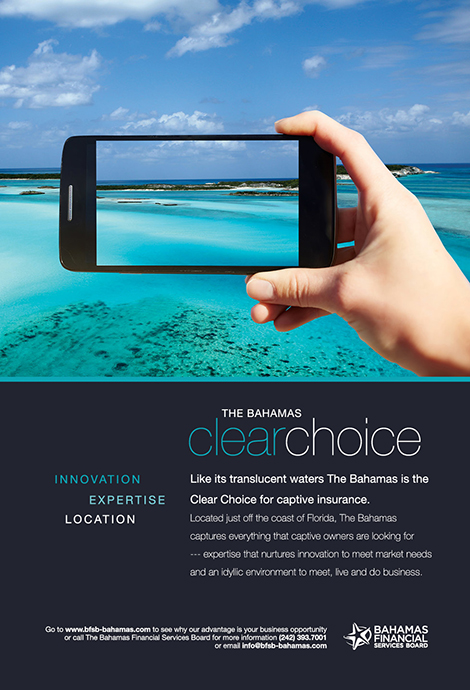Barney Dixon outlines the meaning of ‘economic substance’ and what its measure means for tax jurisdictions
The concept of “economic substance”, in companies operating in no or nominal tax jurisdictions, such as Anguilla, the Bahamas, Bermuda, and Barbados, has become a key focus point for EU and Organisation for Economic Co-operation and Development (OECD) efforts.
In recent years, the EU and the OECD have targeted entities with no or minimal substance. In reviewing preferential tax regimes, the EU developed a Code of Conduct on Business Taxation. Now, with the more recent OECD Forum on Harmful Tax Practices (FHTP), such areas are facing more scrutiny — with the natural outcome being that captive insurance companies domiciled are facing the same scrutiny.
Under this scrutiny very few tax jurisdictions have been setting out and creating entirely new regulatory regimes. In compliance with recent EU and OECD requirements, these new regimes aim to stop jurisdictions from being used to facilitate the use of structures which attract profits but do not reflect real economic substance in the jurisdiction. An entity domiciled in such a jurisdiction must demonstrate that it is carrying on business there.
As of 2021, the OECD has been annually monitoring substance in no or only nominal tax jurisdictions, and has claimed that there has been progress on the implementation of an international standard on harmful tax practices. Many of the jurisdictions targeted by this review have been classed as “not harmful”, with many introducing economic substance requirements as of January 2019. However, some jurisdictions, such as Barbados, have been asked to provide improvements to certain aspects of their effectiveness, such as compliance actions and exchanges of information.
But how has scrutiny and subsequent legislation related to economic substance affected these jurisdictions? More specifically, have there been any widespread repercussions for captive insurance companies domiciled there?
The effects on pride and industry
Barbados, as an example, implemented its Companies (Economic Substance) Act in 2019. The objective was to impose an economic substance test for companies carrying on relevant activities in Barbados, including insurance companies. The act involves a test, and allows for enforcement action in circumstances where entities do not meet the qualifying requirements.
According to Kirk Cyrus, managing director at Strategic Risk Solutions, a resident Barbados company meets the economic substance test in relation to a relevant activity carried on by that company where it has been confirmed that the company conducts its core income generating activities (CIGA) in Barbados, and the company is directed, managed, and controlled in Barbados in relation to that activity.
With respect to insurance, Cyrus says that CIGA is defined as “the predicting or calculating of insurance risk(s); the (re)insuring of risk; and the provision of insurance business services.”
“The impression given by the EU/OECD members is that the Caribbean region is being used by multinationals to shift revenues to reduce their tax liability, and by individuals to engage in various illegal activities. The genesis of the establishment of substance legislation across international financial centres, as I understand, started with the EU establishing a code of conduct group for business taxation that has largely become a pathway for a global OECD standard.”
Cyrus adds that the enactment and enforcement of the legislation in Barbados seems to have satisfied “all reasonable expectations and the country can definitely be considered as having fulfilled its commitments to the EU/OECD in this respect, for the time being.”
He notes that the fallout of a blacklisted country “will always be one of reputation damage and stricter controls over financial transactions.” He describes this as a “serious threat” to the economic security of financial services in the region that are reliant on correspondent banking relationships in EU/OECD member countries.
Has the implementation of the legislation affected captive insurance companies domiciled in Barbados, and has it had any wide reaching effects on the industry? “The simple and unequivocal response in both instances is ‘no,’” says Cyrus.
According to Cyrus, Barbados’ main source market for international insurance remains significantly in Canada, accounting for just over 50 per cent total licensees.
“Canadian parented licensees have existed in Barbados in some cases for almost 40 years, reinforcing the long-held view that using a Barbados captive as an alternate risk financing solution for that market is effective under the right circumstances,” he continues.
Cyrus says that some of the EU/OECD’s requirements already hold some standing for captive insurance in Barbados, due to the Canada/Barbados Double Taxation Agreement (DTA), that came into force in 1980.
Since then, “licensees have been subject to a ‘mind and management test’ on their operations,” Cyrus says, “notwithstanding the fact that DTAs will typically contain rules for determining residency, ‘mind and management’ as a common law concept has generally established that a company is resident in the country where its central management and control is exercised.”
“That test has been considered many times in case law and a foreign company will not be considered to have its mind and management in Canada if a majority of its directors are not resident in Canada. All directors meetings take place in a foreign jurisdiction, a majority of the non-Canadian resident directors attend those meetings, substantial independent thought is exercised by the directors, and the foreign company’s directors implement business decisions made from Canada.”
He continues: “Over the years, various taxation professionals have repeatedly stated that dividends paid in Canada from the active business income of a foreign affiliate are generally received free of Canadian tax as ‘exempt surplus’ in accordance with Section 95 of the Federal Income Tax Act, provided that the foreign affiliate is resident in a treaty country like Barbados, both under the common law principle of central management and control, or as defined in the applicable DTA.”
“In reality, the requirement for Canadian foreign affiliates to meet the ‘mind and management’ litmus created an operating ethos since the mid-1990s to such an extent, that licensees, regardless of the source market, were already adhering to the general requirements of the economic substance legislation when enacted at the start of 2019.”
According to Cyrus, there has been an acceptance of purpose and intent of the new legislation among stakeholders, with the only real impact being the need for licensees to annually file an Economic Substance Declaration with the director for International Business in Barbados within 12 months of the last day of each fiscal period.
Cyrus says that this declaration requires a confirmation of whether or not licensees are carrying on a relevant activity; whether or not they derive income from a relevant activity; whether that relevant activity is subject to tax in a jurisdiction outside of Barbados; if they are compliant with economic substance requirements in a jurisdiction outside of Barbados and evidence in support; and proof of the date of the end of the fiscal period.
Staying ahead of the curve
With 2019’s legislation in mind, for prospective captive owners looking to operate in Barbados, Cyrus’ advice is to ensure the engagement of a “knowledgeable and experienced insurance manager.”
“That manager would be expected to have the ability to perform the daily operations of the company, considering the special legislative and regulatory requirements, while maintaining a strong working relationship with a key stakeholder like the insurance regulator, which in Barbados is the Financial Services Commission.”
He continues: “Furthermore, a resident Barbados company is required to satisfy economic substance in relation to its insurance business, if the CIGA is conducted by a legal person in Barbados, and the licensee is able to monitor and control the actions carried out by that person, in Barbados.”
Cyrus notes that the importance of choosing the correct insurance manager is further appreciated as the legislation allows the outsourcing of operations to third parties.
The licensee must also be able to demonstrate that when some or all of the CIGA is outsourced, “it has adequate supervision of the outsourced activities and that the CIGA is undertaken in Barbados.”
“To the extent that the CIGA is outsourced, the resources of the engaged insurance manager in Barbados will be taken into consideration when determining whether two key criteria are met, being the number of employees and physical assets utilised,” Cyrus says, “the employees of the insurance manager can be counted for the purpose of identifying the employees of the licensee used to satisfy the economic substance test.”
Apart from the choice of manager, what else should prospective captive owners look to contemplate? Cyrus says that they must carefully consider the overall corporate governance of the resident Barbados company.
He adds: “Captive owners are therefore encouraged to establish a governance framework that will encourage the notion that the entity is indeed managed and directed in Barbados.”
“This relates to how the entity performs and documents such matters as the selection of board of directors, including the composition and experience of its members; the frequency of, and level of decision making at board meetings; that there is a quorum of directors physically present in Barbados during meetings, where the majority of these meetings are physically held in Barbados during a given year; and that all such minutes of directors’ meetings are recorded and maintained in Barbados confirming that the board is a fully functioning decision making body with the appropriate knowledge and experience.”
This advice is useful across many jurisdictions as the added scrutiny of EU/OECD intervention continues. For captive insurance companies, the path to maintain compliance with any legislation under the current requirement is clear. Captive insurance companies should commit to proactive reviews to ensure their compliance with the requirements and seek advice from experts in the local jurisdiction.





